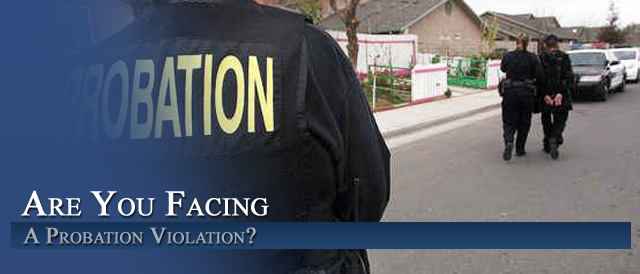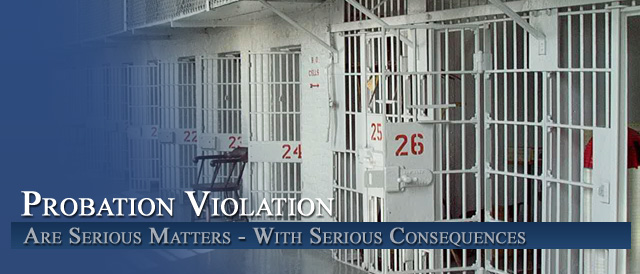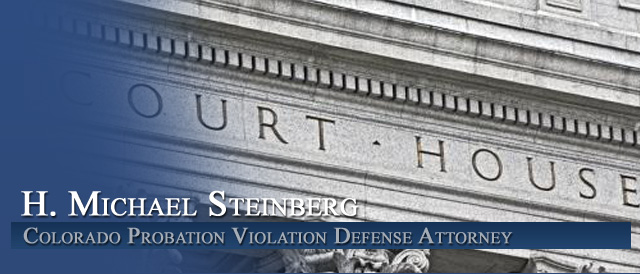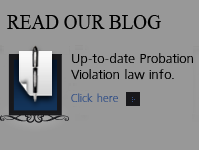




Colorado Probation Violations Based On The Use Of Medcial Marijuana
By Colorado Drug Crimes Criminal Defense Lawyer – H. Michael Steinberg
THIS TOPIC HAS TOTALLY CHANGED BECAUSE OF A NEW LAW ENACTED AND SIGNED BY THE COLORADO GOVERNOR ON MAY 8 2015 – HERE IS A LINK TO THE NEW PAGE –
Colorado Probation Violations Based On The Use Of Medical Marijuana – This topic is becoming more and more controversial in the State because of the inherent inconsistency of laws that permit the legal use of marijuana (with a license) for medicinal use and the condemnation of that same use when a Colorado citizen is place on any form of probation.
Medical Marijuana – Colorado State Prohibits Using It During Your Probationary Period – Using It Is A Violation of Probation
Understanding a probation based sentence under Colorado law begins with understanding the nature of probation itself. Let’s start with the law.
Whatr Follows is the Colorado Law That Sets Out The Relevant Sections Of The Conditions Of A Colorado Probation Sentence
18-1.3-204. Conditions of probation – interstate compact probation transfer cash fund – creation
[HMS – It is mandatory – judge’s have no discretion to ignore the law – that – under the following section – a person on probation cannot commit another offense during probation]
(1) The conditions of probation shall be such as the court in its discretion deems reasonably necessary to ensure that the defendant will lead a law-abiding life and to assist the defendant in doing so. The court shall provide as explicit conditions of every sentence to probation that the defendant not commit another offense during the period for which the sentence remains subject to revocation, that the defendant make restitution pursuant to part 6 of this article and article 18.5 of title 16, C.R.S., that the defendant comply with any court orders regarding substance abuse testing and treatment issued pursuant to sections 18-1.3-209 and 18-1.3-211 and article 11.5 of title 16, C.R.S., and that the defendant comply with any court orders regarding the treatment of sex offenders issued pursuant to article 11.7 of title 16, C.R.S. The court shall provide as an explicit condition of every sentence to probation that the defendant not harass, molest, intimidate, retaliate against, or tamper with the victim of or any prosecution witnesses to the crime, unless the court makes written findings that such condition is not necessary.
[HMS – Section 2 (a) is the primary section for the discretionary – not mandatory -conditions of probation that a judge may or may not impose]
(2) (a) When granting probation, the court may, as a condition of probation, require that the defendant:
(I) Work faithfully at a suitable employment or faithfully pursue a course of study or of vocational training that will equip the defendant for suitable employment;
(II) Undergo available medical or psychiatric treatment and remain in a specified institution if required for that purpose. In any case where inpatient psychiatric treatment is indicated, the court shall proceed in accordance with article 65 of title 27, C.R.S., and require the defendant to comply with the recommendation of the professional person in charge of the evaluation required pursuant to section 27-65-105 or 27-65-106, C.R.S.
(III) Attend or reside in a facility established for the instruction, recreation, or residence of persons on probation;
(III.5) Participate in restorative justice practices, as defined in section 18-1-901 (3) (o.5), if available in the jurisdiction, requested by the victim who has been informed about restorative justice practices pursuant to section 24-4.1-303 (11) (g), C.R.S., and the defendant is determined suitable by a designated restorative justice practices facilitator. To be eligible for restorative justice practices, the defendant shall not have been convicted of unlawful sexual behavior as defined in section 16-22-102 (9), C.R.S., a crime in which the underlying factual basis involves domestic violence, as defined in section 18-6-800.3 (1), stalking as defined in section 18-3-602, or violation of a protection order as defined in section 18-6-803.5. Any statements made during a restorative justice conference shall be confidential and shall not be used as a basis for charging or prosecuting the defendant unless the defendant commits a chargeable offense during the conference. Failure to complete the requirements arising from a restorative justice conference may be considered a violation of probation. Nothing in this subparagraph (III.5) shall be construed to require a victim to participate in a restorative justice victim-offender conference.
(IV) Support the defendant’s dependents and meet other family responsibilities, including arranging and fulfilling a payment plan for current child support, child support arrearages, and child support debt due under a court or administrative order through any delegate child support enforcement unit that may have a child support case with the defendant;
(V) Pay reasonable costs of the court proceedings or costs of supervision of probation, or both. The probation supervision fee shall be fifty dollars per month for the length of ordered probation. Notwithstanding the amount specified in this subparagraph (V), the court may lower the costs of supervision of probation to an amount the defendant will be able to pay. The court shall fix the manner of performance for payment of the fee. If the defendant receives probation services from a private provider, the court shall order the defendant to pay the probation supervision fee directly to the provider. The fee shall be imposed for the length of ordered probation.
(VI) Pay any fines or fees imposed by the court;
(VI.5) Repay all or part of any reward paid by a crime stopper organization that led to the defendant’s arrest and conviction in accordance with article 15.7 of title 16, C.R.S.;
(VII) Refrain from possessing a firearm, destructive device, or other dangerous weapon unless granted written permission by the court or probation officer;
(VIII) Refrain from excessive use of alcohol or any unlawful use of controlled substances, as defined in section 18-18-102 (5), or of any other dangerous or abusable drug without a prescription;
(IX) Report to a probation officer at reasonable times as directed by the court or the probation officer;
(X) Permit the probation officer to visit the defendant at reasonable times at the defendant’s home and elsewhere;
(XI) Remain within the jurisdiction of the court, unless granted permission to leave by the court or the probation officer;
(XII) Answer all reasonable inquiries by the probation officer and promptly notify the probation officer of any change in address or employment;
(XIII) Be subject to home detention as defined in section 18-1.3-106 (1.1);
(XIV) Be restrained from contact with the victim or the victim’s family members in cases in which the defendant was convicted of a crime, the underlying factual basis of which included an act of domestic violence, as defined in section 18-6-800.3 (1);
(XIV.5) Be subject to electronic or global position monitoring;
(XV) Satisfy any other conditions reasonably related to the defendant’s rehabilitation and the purposes of probation.
Here Is The Analysis Of The Issue Based On Two Colorado Cases – Control This Issue In Colorado
Under Colorado law, trial courts are required to set as a condition of probation that probationers “not commit another offense.” C.R.S. 18-1.3-204(1).
While the law – 18-1.3-204(1) does not define what is an offense, another Colorado law defines an offense as “a violation of, or conduct defined by, any state statute for which a fine or imprisonment may be imposed.” C.R.S. 18-1-104(1).
While the use of medical marijuana is permissible under Colorado state law, our Colorado courts interpret Federal laws prohibiting possessing medical or ANY kind of marijuana. This issue was tested in two different cases in Colorado – one the Beinor case and the other – the Watkins case. (2011 and 2012).
SINCE an “offense” under CRS § 18-1.3-204(1) includes any violation of a statute or ordinance for which confinement is authorized as a penalty and Federal law makes it unlawful for any person to knowingly or intentionally possess marijuana, (any person who violates prohibition may be sentenced to prison for not more than one year), THEN a defendant’s federally prohibited use of medical marijuana would constitute an “offense” within the meaning of CRS § 18-1.3-104(1) and THEREFORE violates the terms and conditions of his or her probation.
In Watkins the Colorado Court of Appeals affirmed that marijuana could not be legally “prescribed,” and that Mr. Watkins’ lawful medical use of marijuana was a violation of the condition that he not use or possess “any narcotic, dangerous or abusable substance without a prescription.”
In Beinor the Court of Appeals held that Amendment 20, (use of marijuana is “medical use” as defined in Colo. Const., art. XVIII, § 14) Colorado’s original medical marijuana law, does not extend a constitutional right to patients, but rather protects patients from criminal prosecution under limited circumstances.
The reasoning is that the “medical use of marijuana”under Colo. Const., art. XVIII, § 14 is not pursuant to a prescription, and therefore does not meet the probation requirement that it is a “medically prescribed controlled substances” within the meaning of CRS § 8-73-108(5)(e)(IX.5).
Also Colorado’s Medical Use of Marijuana Amendment allows a physician ONLY to provide “written documentation” that a patient has a “debilitating medical condition” and might therefore benefit from the medical use of marijuana. But that “certification” does not constitute a “written lawful prescription” as required by the terms of Colorado probation.
The Watkins Court wrote:
“[N]either Petitioner [Watkins] nor any other probationer in Colorado – regardless of the underlying offense, the circumstances of the probationer’s illness, or the trial court’s view – may use medical marijuana.”
Colorado Probation Violations Based On The Use Of Medical Marijuana – The “Rub” Federal Law Controls…
While Colorado’s medical marijuana provision protects Colorado citizens from NEW prosecutions under Colorado’s criminal laws, (…note that probation revocation is an administrative proceeding that does not punish a defendant for violating criminal laws), the constitutional amendment does not control federal laws and under those laws marijuana remains an illegal substance.
Some Legal Research On The Very Nature Of A Probation Sentence
Probation is a statutory creation and the terms of probation are therefore directly “derived from the applicable statute.”
The law – Section 18-1.3-204(1) above – identifies the mandatory and discretionary conditions for probation. The mandatory section provides that while the “conditions of probation shall be such as the court in its discretion deems reasonably necessary to ensure that the defendant will lead a law-abiding life and to assist the defendant in doing so.” Section 1 states that “the court shall provide as [an] explicit condition[] of every sentence to probation that the defendant not commit another offense during the period for which the sentence remains subject to revocation.”
Under Colorado law, “[p]robation is a privilege, not a right” and probationers “do not enjoy ‘the absolute liberty to which every citizen is entitled.’”
Here are a few of the various restrictions on the constitutional rights of Colorado citizens that have been upheld: Limitations upheld include:
…upholding geographic restriction condition of defendant’s probation.
…holding that a probation officer’s reasonable suspicion that the defendant had violated his probation conditions was sufficient to justify a search, and rejecting contention that a warrant or showing of probable cause was required.
….upholding restriction that defendant may have only supervised contact with her children during probation.
….upholding a restriction as to persons with whom defendant could have contact and rejecting constitutional freedom of association contention, where conditions were reasonably related to the purposes of the probation
Conclusion – And Some Hope
While the legalization of possessing small amounts of marijuana if you are 21 does not affect these decisions, there is a ray of hope and a possible “out” from the revocation of probation in this situation.
Colorado law permits a judge to NOT revoke probation if – in the Court’s discretion – it would be unfair to do. This law – and laws enacted in 2013 – permit judge’s to refuse to revoke deferred judgement and sentences in drug cases and more generally – refuse a prosecutor’s demand to revoke probation even after a technical or other violation of probation has occurred.
While this is a VERY SLIM REED – Here is the relevant section of the overall law:
16-11-206. Revocation hearing
….(5) If the court determines that a violation of a condition of probation has been committed, it shall, within seven days after the said hearing, either revoke or continue the probation. If probation is revoked, the court may then impose any sentence or grant any probation pursuant to the provisions of this part 2 which might originally have been imposed or granted.
Colorado Probation Violations Based On The Use Of Medical Marijuana
Denver Colorado Probation Violation Criminal Defense Lawyer
ABOUT THE AUTHOR: H. Michael Steinberg – Email The Author – [email protected] or call his office at 303-627-7777 during business hours – or call his cell if you cannot wait and need his immediate assistance – 720-227-7777.
If you are charged with A Colorado crime or you have questions about Colorado Probation Violations Based On The Use Of Medical Marijuana, please call our office. The Law Offices of H. Michael Steinberg, in Denver, Colorado, provide criminal defense clients with effective, efficient, intelligent and strong legal advocacy. We can educate you and help you navigate the stressful and complex legal process related to your criminal defense issue.
H. Michael Steinberg, is a Denver, Colorado criminal defense lawyer with over 40 years of day to day courtroom experience – specializing only in Colorado Criminal Law along the Front Range. He will provide you with a free initial case consultation to evaluate your legal issues and to answer your questions with an honest assessment of your options. Remember, it costs NOTHING to discuss your case. So call now for an immediate free phone consultation.
Helping Clients To Make Informed Decisions In the Defense of Colorado Criminal Cases. Colorado Defense Lawyer H. Michael Steinberg provides solid criminal defenses for clients throughout the Front Range of Colorado – including the City and County courts of Adams County, Arapahoe County, City and County of Boulder, City and County of Broomfield, City and County of Denver, Douglas County, El Paso County – Colorado Springs, Gilpin County, Jefferson County, Larimer County, and Weld County,…. and all the other cities and counties of Colorado along the I-25 Corridor… on cases involving …Colorado Probation Violations Based On The Use Of Medical Marijuana.
Other Articles of Interest:
- UPDATE: Colorado Medical Marijuana and Probation – Analysis Of The New Law In 2016
- Colorado Medical Marijuana and Probation – Analysis Of The New Law In 2015
- Colorado Criminal Law – Can You Use Medical Marijuana While On Probation in Colorado – Update – A New 2015 Law Says YES With Conditions
- Attorney Profile
- Colorado Probation Violations – Trying To Beat The Urinalyses (UA) – A Losing Proposition In Most Cases













